SUMMARY
This is AI generated summarization, which may have errors. For context, always refer to the full article.
![[OPINION] The problem with the impending back-to-office policy](https://www.rappler.com/tachyon/2022/03/imho-back-to-office-policy.jpg)
The Duterte administration has robbed me of two years of my life. Since the pandemic started, this government has had nothing to give to its workers – the foundation of this economy – but thoughts and prayers, and not even the barest minimum of safety and security. Two years later, consistent with neglect as their pandemic response, the Fiscal Incentives Review Board has rejected the petition to extend the work-from-home arrangements of employees, prioritizing economic recovery amid a still ongoing pandemic and soaring oil and goods prices.
My first job after graduation was a permanent work-from-home position, so when the lockdown started, not much changed in my situation. I was an outsourced writing consultant for university students abroad, and when schools started closing down in other countries, the papers I rely on as a performance-based salary employee started to dwindle. It even came to a point where there were days of no work coming in, and I couldn’t even pay rent as a fresh grad probinsyana struggling to live in Imperial Manila, the promised land of opportunities. I had no choice but to resign in the heat of a pandemic. I was stuck at home, waiting for government assistance that is still being extorted, while I sent what seemed to be thousands of job applications, having no idea what companies were hiring amid an economic collapse.
It was still months later before I realized that this situation was not going to go away anytime soon. With the government’s terrible COVID-19 response, I felt like I was left to deal with this pandemic on my own. I see people struggling to settle into their new working spaces, with some giving up their apartments/condos in the Metro to live with their families in the province, and others suffering from the lack of distinction between work/study and personal time. This work-from-home setup compelled people to adapt and be more flexible, upgrading their desk setups and living spaces in general. Clearly, this limited mobility brought upon by the pandemic has forced us to look inward and focus on personal and domestic development.
Having no need to hustle through the atrocious commute that takes up half the working hours, I found that I had more time to spend with my loved ones, learn a skill, find a new hobby, adopt a pet, or volunteer to a cause. This arrangement has made at least middle-class workers like myself financially more secure as I build my savings, cutting out a chunk of transportation and eating out expenses. The work-from-home setup even favors the corporations as they are able to save company funds allotted for rent or office spaces. The fact that these businesses have thrived through these years despite the sudden shift proves that economic recovery is possible without the need to go back to pre-pandemic working standards.
Requiring workers to go back to the office is such an extreme measure for the sake of economic recovery. This imperative by our institutions to work face-to-face banks on the perpetuated lie that people need to spend for the economy to recover, ergo, trickle down to the lower classes most affected by the pandemic. People have been spending while working from home or wherever they are. The increase in electric consumption, internet bandwidth, and home office paraphernalia are expenses most probably shouldered by workers like myself that are forced to adapt to the situation.
What the government wants is to increase foot traffic in favor of businesses in the economic zone that require face-to-face interactions to operate, which is ignoring the fact that micro, small, and medium enterprises near residential or provincial places are thriving because of people working from home. Consistently, the administration’s pandemic response has been without consideration to the workers, with its bare minimum vaccination program and expensive testing opportunities.
COVID-19, which although had decreased to less than a thousand cases a day, still has almost 50,000 total active cases, is no longer considered an issue here as they are willing to risk the safety of workers, even pushing for a full 100% back-to-office provision. Current health protocols imposed on public transportation do not actually make me feel safe, especially when the government has just lifted the face shield requirement, a protocol not backed by science, not too long ago. Buses and other public utility vehicles especially to provinces have not even gone back to pre-pandemic routine trips. Because of this, every so often for the last few years, my mother, having no private vehicle herself, is forced to rent a van for P10,000 for a one-way trip just to fetch me during the holidays. I shudder to think of rent-a-vehicle prices this coming December as oil prices, and soon inevitably basic commodities, skyrocket with the ongoing Russia-Ukraine conflict.
It is frustrating to think that all of these problems are preventable, or at least manageable, with even just a simple substantial pandemic plan. If the government had just closed our borders earlier, invested in research and development upfront, carried out mass testing, and provided sufficient subsidies and assistance, then we would not have to hasten and undertake extreme measures “for the economy.” Alas, we have reached this point. We are all being summoned back to the buildings and forced to adjust yet again with their sloppy policies despite the fact we conformed to all these rules, wearing our masks and face shields diligently, not going out during the lockdowns, and performing the overpriced routine tests. Meanwhile, I can think of more than a handful of instances where these officials and the rich get a free pass to ignore these protocols that the poor have to literally die for.
This pandemic has highlighted the weaknesses of the current system and has redefined the acceptable working standards at least for the middle class. Economic recovery is always a welcome proposition, but this should entail recovery for all those affected by the pandemic, not just business owners. The new normal should call for readjustments in working conditions, which are possible in other ways that do not have to risk the safety of workers. This should also entail the re-evaluation of benefits and allowances, and the recognition of the need for flexible working hours and spaces.
The coming May elections begs the question of who would actually fight for the rights of workers. We do not need policy makers that never had to actually live down here with us with their repressive schemes: a transportation secretary that has never experienced public commuting, a health secretary that ignores the inconsiderate wages of our health workers, or a labor secretary that overlooks the issue of contractualization. These are issues that we have to grit our teeth through while these public “servants” only care for their personal interest, an interest that we do not share as we have different lived realities, and we need someone who has experienced these too firsthand.
While the future after the pandemic continues to be bleak and unsure, it should be clear by now that the economy that our institutions have been invigorating for the past year has always been hanging on the backs of workers. Is not caring for their safety the barest minimum our institutions can provide? – Rappler.com
Lian Manzares is a technical editor at a pharmaceutical company and a graduate student of literature and sociology at the University of the Philippines Diliman. She likes to play video games when she has the time.
Add a comment
How does this make you feel?
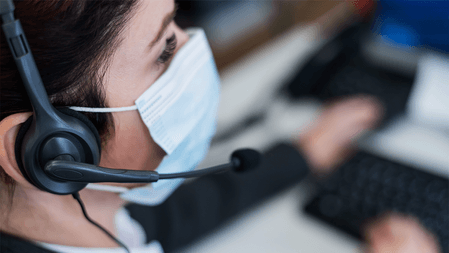
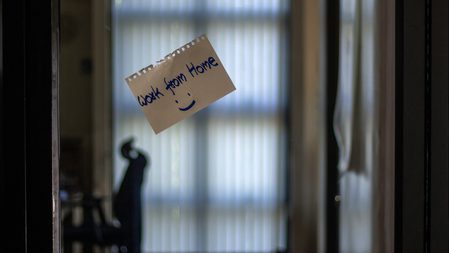
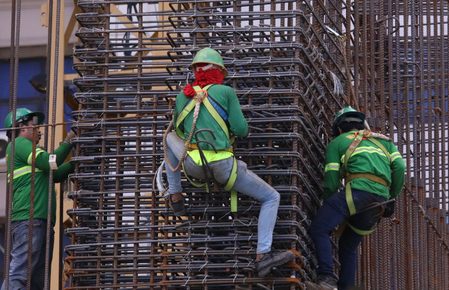

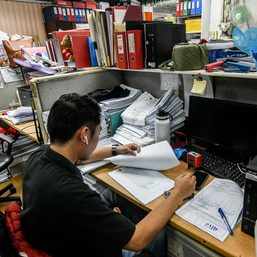
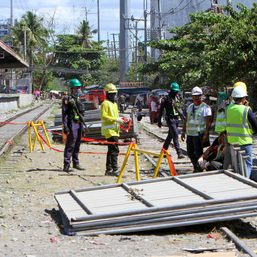
![[ANALYSIS] A new advocacy in race to financial literacy](https://www.rappler.com/tachyon/2024/04/advocacy-race-financial-literacy-April-19-2024.jpg?resize=257%2C257&crop_strategy=attention)
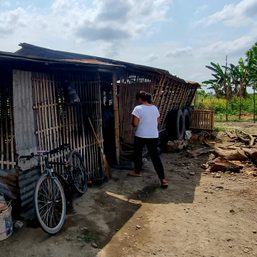
There are no comments yet. Add your comment to start the conversation.